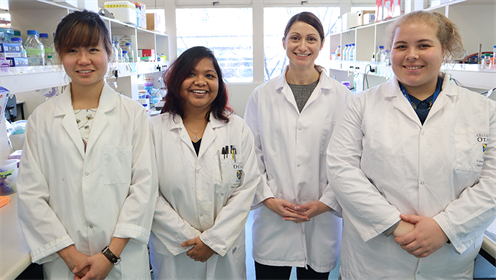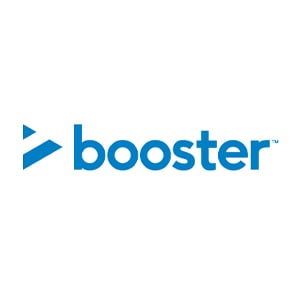Amaroq Therapeutics has secured $14 million in backing to help develop a new kind of targeted cancer drug in the emerging field of RNA therapy.
The Amaroq Therapeutics team, led by chief scientific officer and founder, Dr Sarah Diermeier, are pioneers in exploring the use of long non-coding RNA molecules to target cancer treatment.
Now part of NZ Innovation Booster's portfolio, Amaroq Therapeutics received an investment from Australian-based life science investor, Brandon Capital.
The $14m in backing – led by Brandon Capital and supported by Otago Innovation Ltd, NZ Innovation Booster and Cure Kids Ventures – will help to fund the development of a new drug that will target and kill only cells containing IncRNA molecules.
Amaroq wants to develop targeted drugs in the fight against specific cancers, rather than one 'broad hammer that kills everything.'

The Amaroq Therapeuctics team: L-R Jolyn Chia, Dr Debina Sarkar, Dr Sarah Diermeier, Ginny Niemi
"Our research has shown that specific IncRNA molecules are highly expressed in cancer cells, but not normal healthy cells," Diermeier said.
"Removing these IncRNA molecules from cancer cells can slow down the process of the cells dividing. This gives us real hope that IncRNA molecules could hold the key for treating many forms of common cancer."
The $14m will be used to fund the development of a new drug that will target and kill only cells containing those IncRNA molecules Diermeier has identified, and the initial testing of that drug in small numbers of healthy humans (known as Phase 1A clinical trials) and terminal cancer patients for whom several other drugs haven't worked (Phase 1B).
Assuming success at phase 1, which is designed to check for toxic side effects, the next step would be phases 2 and 3 clinical trials, which involve larger groups and demonstrate efficacy.
Diermeier said the opportunity to transform her research into a drug represented the fulfilment of a lifelong dream.
That is my life goal – to have a drug in the clinic that has a positive impact on patient survival and wellbeing.

